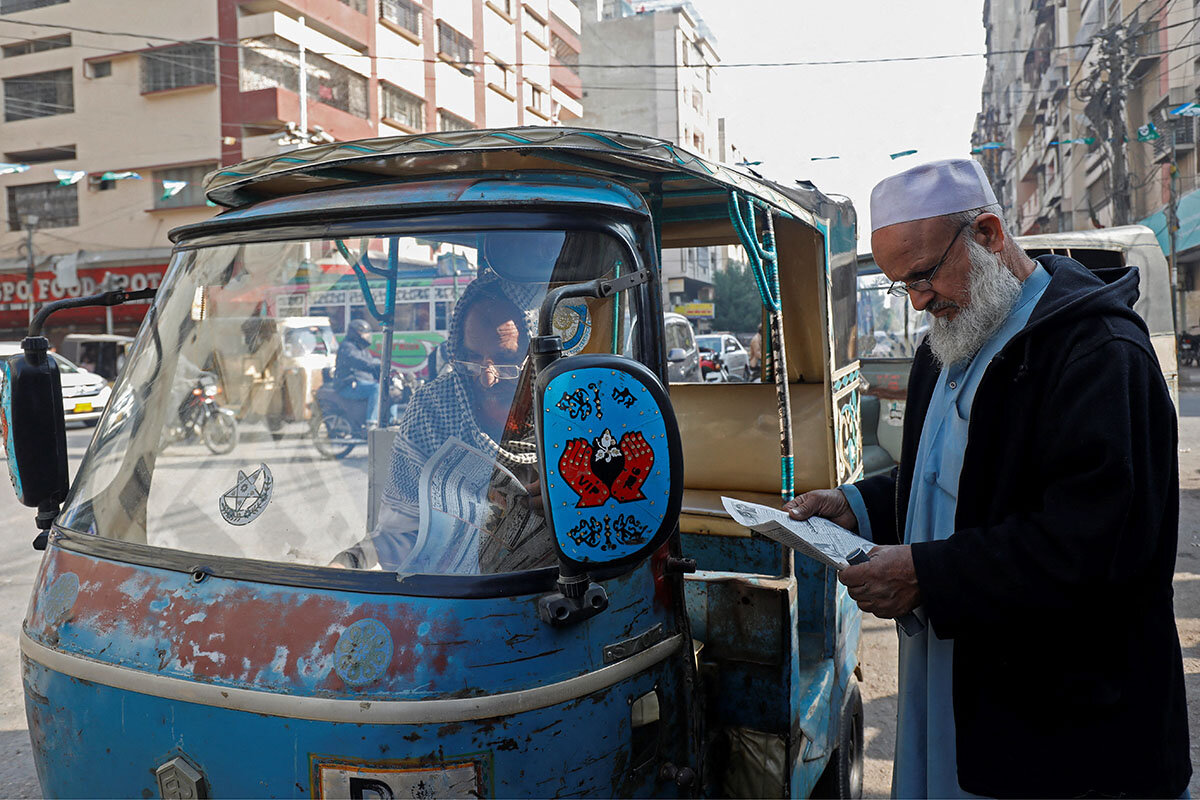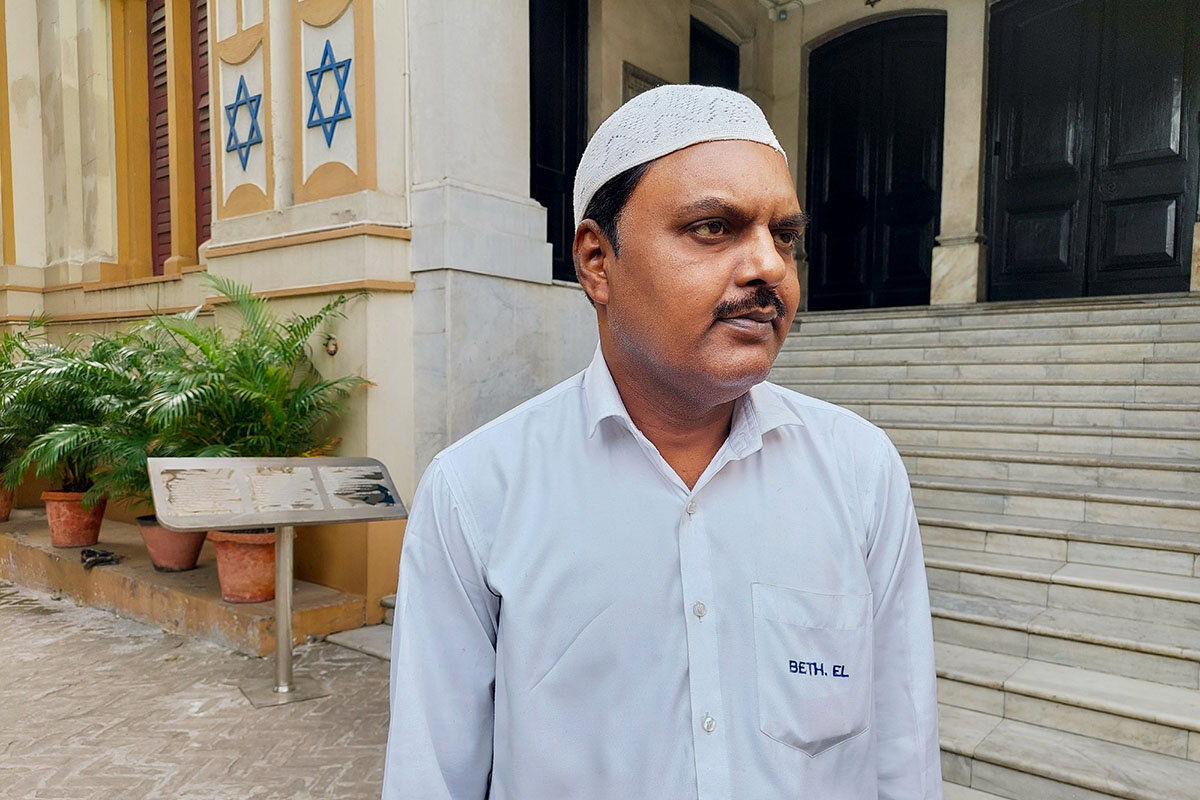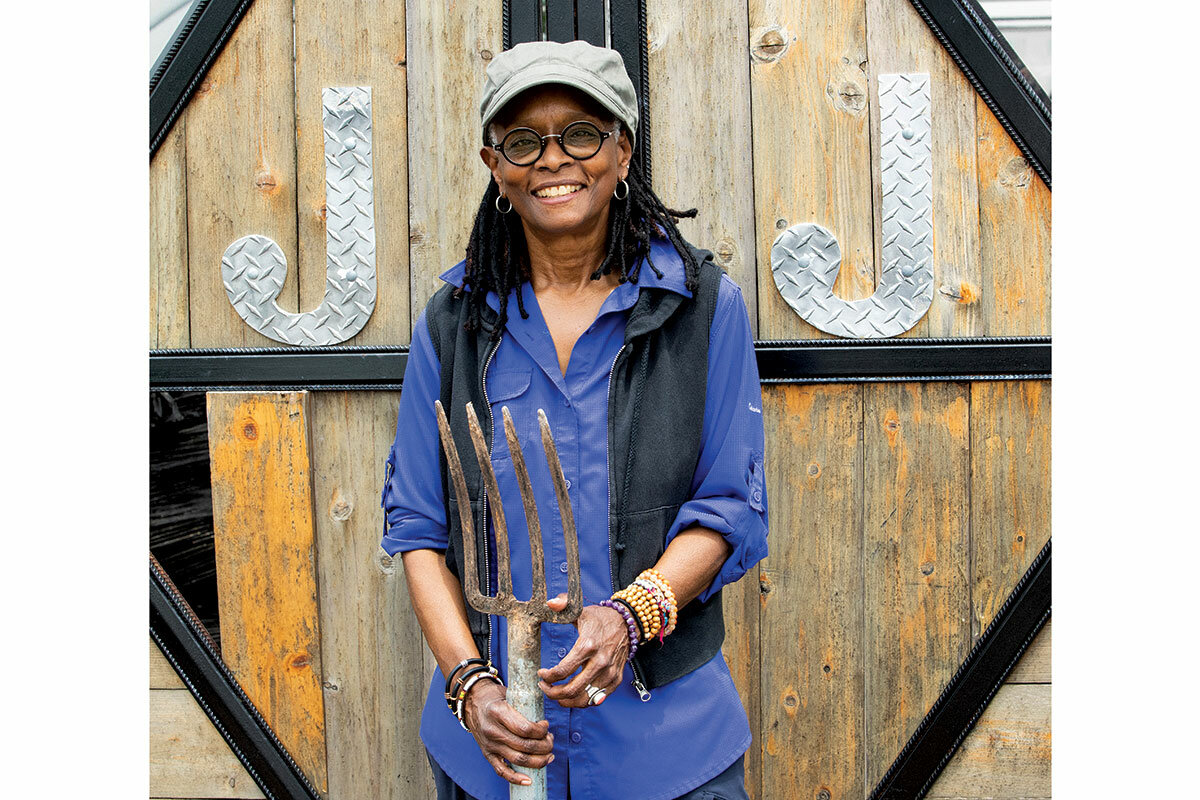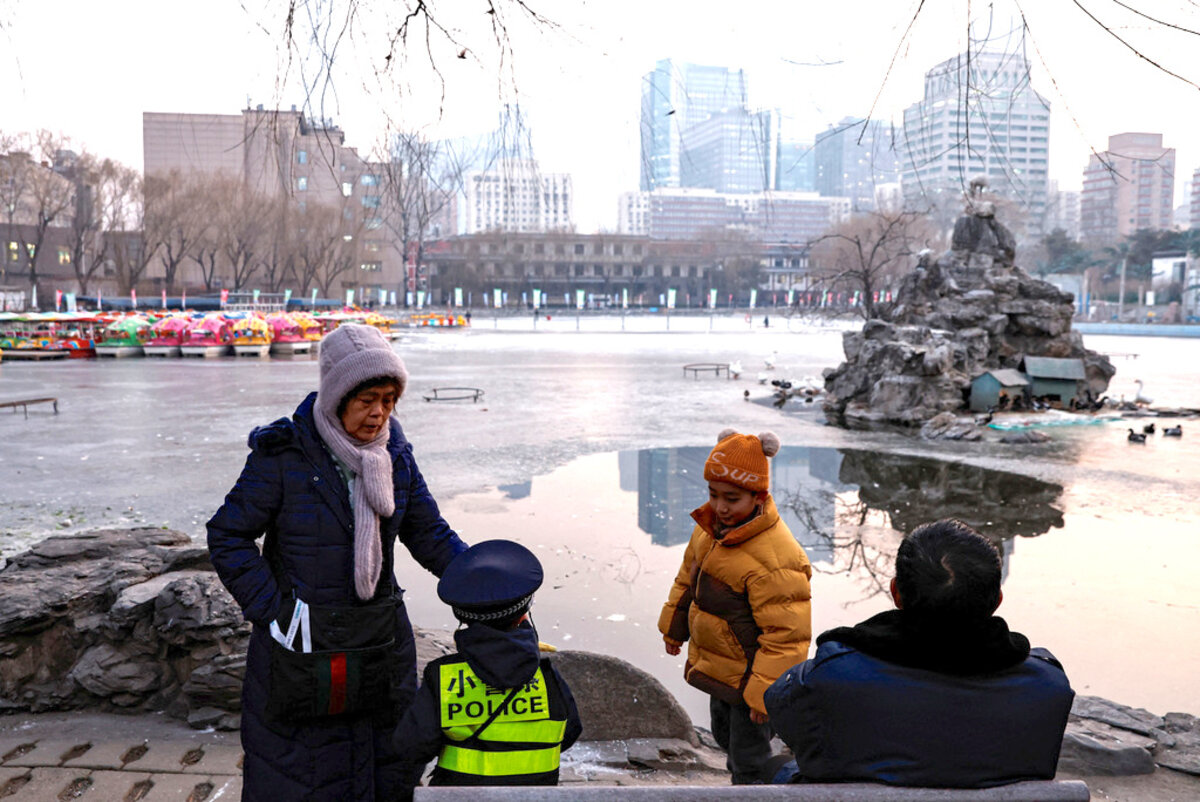The U.S. Supreme Court will make a historic ruling this year on whether the Constitution disqualifies Donald Trump from running for president. The case contains highly complex and rarely litigated questions – some of which are appearing in other cases this term. This month, the Monitor will be analyzing important questions the justices will be considering.

Why is Christian Science in our name?
Our name is about honesty. The Monitor is owned by The Christian Science Church, and we’ve always been transparent about that.
The Church publishes the Monitor because it sees good journalism as vital to progress in the world. Since 1908, we’ve aimed “to injure no man, but to bless all mankind,” as our founder, Mary Baker Eddy, put it.
Here, you’ll find award-winning journalism not driven by commercial influences – a news organization that takes seriously its mission to uplift the world by seeking solutions and finding reasons for credible hope.
Explore values journalism About usMonitor Daily Podcast
- Follow us:
- Apple Podcasts
- Spotify
- RSS Feed
- Download
Farmers crop up in two of our stories today, and in one tomorrow.
In Texas, some face a legal ruling over a new twist on land loss. In Louisiana, one leads a revolution in rice-growing. Tomorrow we’ll report from Senegal on the revival of an old planting technique.
These are more than local takes. One involves the U.S. Supreme Court – and so, many landowners. Another, efforts to reverse the decline of Black-owned farmland. The third, a yield-booster that will help other growers.
The stories are also bound by the traits their main actors share: Resilience and adaptability. The courage to fight. The ingenuity to try something new. That makes them stories not just about farming, but also about how to help the world grow.
Already a subscriber? Log in
Help fund Monitor journalism for $11/ month
Monitor journalism changes lives because we open that too-small box that most people think they live in. We believe news can and should expand a sense of identity and possibility beyond narrow conventional expectations.
Our work isn't possible without your support.
Today’s stories
And why we wrote them
( 5 min. read )
Today’s news briefs
• Uvalde report: A Justice Department report on law enforcement’s handling of the Uvalde school shooting says officers who responded “demonstrated no urgency” in setting up a command post and failed to treat it as an active shooter situation.
• Congress sends Biden short-term spending bill: The U.S. Senate and House passed a stopgap measure to avoid a government shutdown and punt a final budget package until early March. President Joe Biden is expected to sign it before the Friday deadline.
• China and Philippines lower tensions: After a year of tense confrontations with the Philippines in the South China Sea, China says both sides will work through friendly negotiations to manage their differences.
• Russian assets for Ukraine aid: The U.S. and its allies are looking for a legal way to unfreeze $300 billion in Russian central bank funds and use them for Ukraine.
( 5 min. read )
Iran is making moves that turn up the heat in the region. How much of that is strategic and how much of it is off the cuff – and whom will it ultimately help? Our longtime Iran-watcher looks at these and other questions.
( 4 min. read )
The Israel-Hamas war has tested the bonds of Jewish and Muslim communities around the world. In the eastern Indian city of Kolkata, a tradition of respect and solidarity is overpowering panic.
Patterns
( 4 min. read )
In much of Europe, Donald Trump’s Iowa caucus victory is generating deep concern about a second presidential term. Signs are emerging that some leaders view that prospect as both a challenge and a wake-up call.
Difference-maker
( 10 min. read )
Impelled by love, Konda Mason has built community among musicians, social entrepreneurs, and farmers – all in an effort to make the world more just.
The Monitor's View
( 2 min. read )
Censors in China have been busy since Saturday after Taiwan held yet another free and democratic election. Despite a government firewall on the internet designed to control what passes for truth, many Chinese citizens offered rare and favorable commentary about the election. For a brief time, the #TaiwanElection hashtag was No. 11 among trending topics on social media – before being deleted.
One internet user noted that the Chinese Communist Party can hardly criticize the outcome of the election “when you don’t even allow elections at home.” Another netizen wrote, “We would only get such an intense battle when electing our class captain [in high school].”
This brief expression of interest in Taiwan’s democracy is the latest example of a public hungry for transparent and accurate information in a country where even basic statistics about the economy have lately been censored. Another example is the rise of “citizen historians” who have challenged the party’s account of past atrocities and even its claim to rule without opposition. Economy watchers have learned how to use available data, such as of urban pollution and night-light density, to challenge the party’s often dubious claims on national development.
“Resistance in China is more persistent and sustained than many people realize,” China expert Ian Johnson told Psychology Today this month. “The fact that there are still people ... fighting for a more open, tolerant society shows that the roots of opposition in China run deep and are harder to wipe out than many people anticipate.”
The level of opposition is difficult to detect because independent polling is mostly banned in China. Widespread fear of reprisal prevents people from speaking freely to pollsters. Yet one unusual survey technique, in which people express sensitive opinions indirectly, was used by the University of Southern California to gauge what people really think about their rulers.
The survey, conducted online with two groups of 2,000 each and published this month in The China Quarterly, found that support for the party and China’s system of government may be as low as 50%. The government’s surveillance of the internet and repression of dissent discourages some 40% of citizens from participating in anti-regime protests.
“There are truths that I believe Chinese citizens have the right to know,” one Chinese banker told The New Yorker last year. “We’ve all been educated to say, ‘Better to keep our mouths shut.’ But this is wrong. When information doesn’t flow, the whole country will go backward.”
Ordinary Chinese citizens, wrote Mr. Johnson in Foreign Affairs, “may increasingly be ready to question the official narratives,” especially about China’s history, “and develop new understandings of the forces that are shaping the country’s present and its future.”
A Christian Science Perspective
Each weekday, the Monitor includes one clearly labeled religious article offering spiritual insight on contemporary issues, including the news. The publication – in its various forms – is produced for anyone who cares about the progress of the human endeavor around the world and seeks news reported with compassion, intelligence, and an essentially constructive lens. For many, that caring has religious roots. For many, it does not. The Monitor has always embraced both audiences. The Monitor is owned by a church – The First Church of Christ, Scientist, in Boston – whose founder was concerned with both the state of the world and the quality of available news.
( 4 min. read )
Letting the light of joy into our hearts brings to our prayers a greater clarity about God’s healing love for us.
Viewfinder

A look ahead
Thanks for spending some time with us – and come back tomorrow. Besides that story from the Sahara’s edge on the throwback methods aiding millet farmers, we’ll also have a report from New Hampshire on what the often decisive suburban-voter factor looks like as the state’s Republican primary nears.









